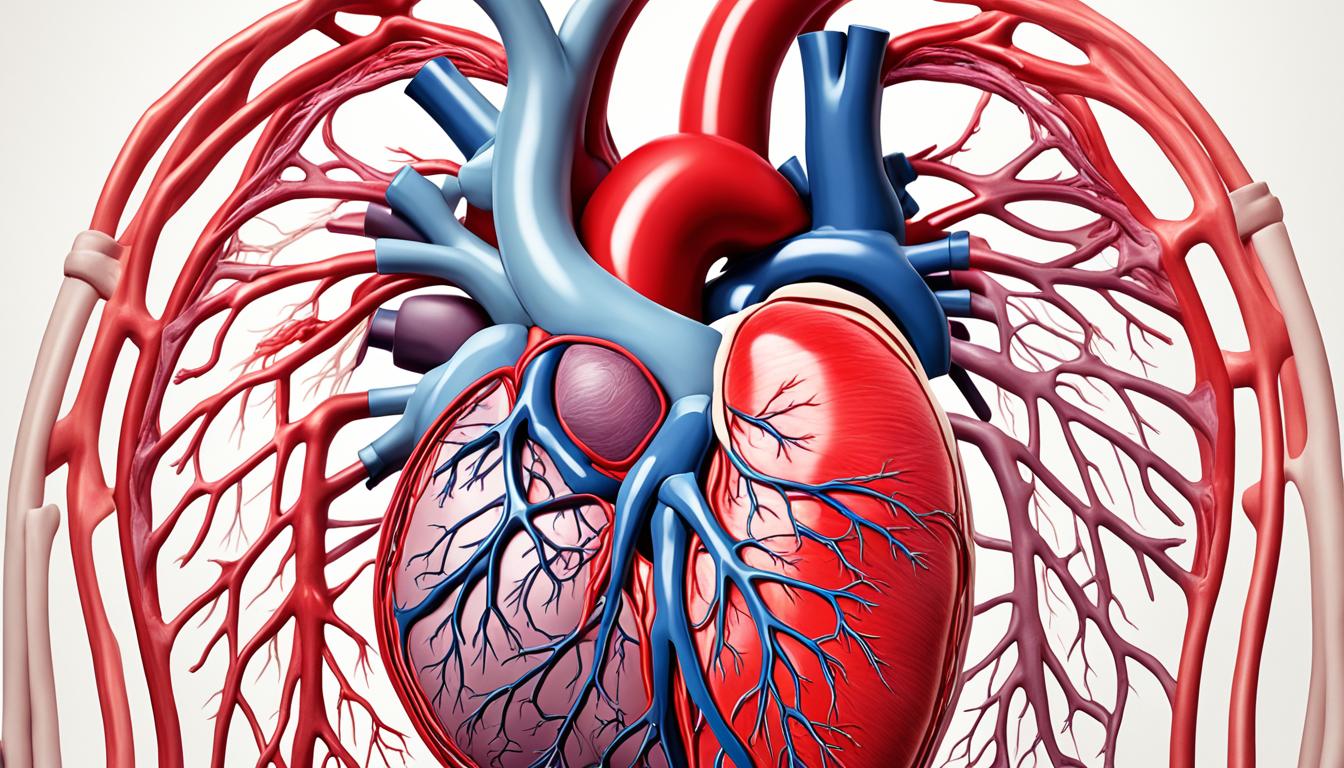Cardiomegaly, or an enlarged heart, can make the heart pump blood less effectively. It may cause problems like heart failure and irregular heartbeats. The reasons behind developing this condition are not all known. Yet, things like virus infections, toxic substance exposure, and genetic aspects might play a role.
To diagnose cardiomegaly, doctors look at the patient’s symptoms and medical past. They also use tests to check the heart’s size and function. If someone has cardiomegaly, the goal of treatment is to stop problems from getting worse and to ease symptoms. This can mean changes in how you live, taking medicines, or sometimes, needing surgery.
But, there’s now a new treatment that’s bringing hope to those with cardiomegaly. Stem cell therapy is this new approach. It uses special cells from sources like bone marrow and umbilical cord blood. These cells help fix the heart’s damaged muscle. Overall, this method can boost heart function by renewing heart tissue. It’s giving good results for people with cardiomegaly.
Key Takeaways:
- Cardiomegaly, or an enlarged heart, affects the heart’s pumping ability.
- Main symptoms include an enlarged heart, progressive heart failure, and arrhythmias.
- Causes of cardiomegaly may include viral infections, toxic exposure, endocrine and immune disregulation, and genetic predisposition.
- Treatment options include lifestyle changes, medications, and surgical interventions.
- Stem cell therapy offers new hope for the treatment of cardiomegaly by promoting heart tissue regeneration and improving function.
Types and Symptoms of Cardiomyopathy
Cardiomyopathy includes a group of heart issues that affect its muscle. These issues vary in type and have distinct features.
Dilated Cardiomyopathy
In dilated cardiomyopathy, the heart chambers get bigger. This makes it hard for the heart to pump blood well. Signs include being out of breath, tiredness, and a heart rhythm that’s not regular.
Hypertrophic Cardiomyopathy
In hypertrophic cardiomyopathy, the heart muscle, mainly the left ventricle, grows thicker. This may reduce blood flow, causing chest pain, breathlessness, and fainting. Sometimes, there are no symptoms at all.
Restrictive Cardiomyopathy
Restrictive cardiomyopathy means the heart muscle stiffens. This stiffness makes it harder for the heart to fill with blood. Signs can be tiredness, breathlessness, and swelling.
Arrhythmogenic Right Ventricular Cardiomyopathy
Arrhythmogenic right ventricular cardiomyopathy affects the heart’s right ventricle muscle. It can cause irregular heartbeats and a higher risk of sudden death. Symptoms include a racing heart, fainting, and being out of breath.
Unclassified Cardiomyopathy
Unclassified cardiomyopathy refers to types not in other categories. Their symptoms and features differ based on the cause.
Knowing the signs of cardiomyopathy is key for spotting it early. If you notice any symptoms, see a doctor for a check-up.
Diagnosis and Treatment of Cardiomegaly
Diagnosing cardiomegaly means checking symptoms and medical history. Tests like ECG, echocardiography, and MRI are used. This helps measure the heart’s size and function to diagnose it right. Treatment then focuses on easing symptoms, stopping complications, and making the heart work better.
Changing how you live is a big part of treating cardiomegaly. It’s important to cut down on exercise and watch what you eat. Avoiding things like too much salt and bad air also helps. These changes stop the heart from working too hard and keep it healthy.
Doctors often use medicines to help with cardiomegaly’s symptoms. Diuretics lower fluids in the body. Cardiac glycosides make the heart beat stronger. Antiarrhythmics fix heartbeats that aren’t steady, making the heart work better and preventing trouble.
Sometimes, surgery is needed for cardiomegaly. Operations like septal myotomy or a heart transplant can help the heart work well again. This boosts the patient’s life quality.
There’s also hope in stem cell therapy for cardiomegaly. Stem cells can repair damaged heart tissue and help grow new blood vessels. This makes the heart stronger and helps it beat normally again. Stem cell treatment improves heart failure signs and ejection fraction in people with heart problems.

